- Home
- Linda Howard
The Touch of Fire
The Touch of Fire Read online
“LINDA HOWARD IS AN
EXTRAORDINARY TALENT.”
—ROMANTIC TIMES
Discover these thrilling books
of romantic intrigue from
Linda Howard
KILL AND TELL
OPEN SEASON
NOW YOU SEE HER
ALL THE QUEEN’S MEN
MR. PERFECT
And look for her
spellbinding romances
SON OF THE MORNING
SHADES OF TWILIGHT
AFTER THE NIGHT
DREAM MAN
HEART OF FIRE
ANGEL CREEK
A LADY OF THE WEST
All available from Pocket Books
“LINDA HOWARD WRITES SUCH BEAUTIFUL LOVE STORIES. HER CHARACTERS ARE ALWAYS SO COMPELLING.... SHE NEVER DISAPPOINTS.”
—JULIE GARWOOD
“LINDA HOWARD MAKES OUR SENSES COMES ALIVE.”
—CATHERINE COULTER
Acclaim for her sensational novels …
KILL AND TELL
“A riveting masterpiece of suspense.”
—Iris Johansen
“Linda Howard pens the most sensual stories … she’ll make your heart beat a little faster! Romantic suspense has never been better.”
—The Literary Times
OPEN SEASON
“A thriller ... with deftness and charm.”
—The Orlando Sentinel
ALL THE QUEEN’S MEN
“A high-suspense romance. … Howard’s trademark darkly sensual style and intense, layered plot will delight her fans.”
—Booklist
“[A] sexy thriller. … Another explosive hit. … When it comes to mixing that perfect blend of romance and danger, Ms. Howard is unbeatable!”
—Romantic Times
“A fascinating novel of suspense and sensual tension”
—Rendezvous
MR. PERFECT
“There is nothing quite like a sexy and suspenseful story by the amazing Linda Howard! Mr. Perfect is funny, exciting, gripping, and sensuous.”
—Romantic Times
“Sexy fun. … A frolicsome mystery.”
—People
SON OF THE MORNING
“Linda Howard offers a romantic time-travel thriller with a fascinating premise … gripping passages and steamy sex.”
—Publishers Weekly
“A complex tale that’s rich with detail, powerful characters, and stunning sensuality.... It’s no wonder that Linda Howard is the best of the best.”
—CompuServe Romance Reviews
SHADES OF TWILIGHT
“[A] sizzler. … Ms. Howard is an extraordinary talent. … [Her] unforgettable novels [are] richly flavored with scintillating sensuality and high-voltage suspense.”
—Romantic Times
“Family, loyalty, love, sex and revenge steam up the pages ... Howard … maintains tension through a twist-filled plot.”
—Publishers Weekly
AFTER THE NIGHT
“Linda Howard is one of the top authors writing romantic intrigue.”
—Affaire de Coeur
“Powerful characters, a powerful setting, and an intriguing mystery.”
—The Literary Times
DREAM MAN
“Sexy, very hard to put down.”
—The Newport Daily News (RI)
“The incomparable Linda Howard brings high-voltage power and hard-edged sensuality to this emotional roller coaster of a novel .... They don’t get much better than this.”
—Romantic Times
Books by Linda Howard
A Lady of the West
Angel Creek
The Touch of Fire
Heart of Fire
Dream Man
After the Night
Shades of Twilight
Son of the Morning
Kill and Tell
Now You See Her
All the Queen’s Men
Mr. Perfect
Strangers in the Night
Open Season
Dream Man
Published by POCKET BOOKS
This book is a work of fiction. Names, characters, places and incidents are products of the author’s imagination or are used fictitiously. Any resemblance to actual events or locales or persons, living or dead, is entirely coincidental.
An Original Publication of POCKET BOOKS
POCKET BOOKS, a division of Simon & Schuster, Inc.
1230 Avenue of the Americas, New York, NY 10020
www.SimonandSchuster.com
Copyright © 1992 by Linda Howington
All rights reserved, including the right to reproduce
this book or portions thereof in any form whatsoever.
For information address Pocket Books, 1230 Avenue
of the Americas, New York, NY 10020
ISBN-13:978-0-671 -01972-3
ISBN-10: 0-671-01972-4
eISBN-13: 978-1-4516-6445-4
First Pocket Books printing October 1992
20 19 18 17
POCKET and colophon are registered trademarks of Simon & Schuster, Inc.
Photo of the sunset by Sarah Dawn Nichols
Cover design by Jae Song
Manufactured in the United States of America
Dedicated to my niece,
Brandwyn Robinson,
whom I’ve loved from the minute
she was born
Contents
Chapter 1
Chapter 2
Chapter 3
Chapter 4
Chapter 5
Chapter 6
Chapter 7
Chapter 8
Chapter 9
Chapter 10
Chapter 11
Chapter 12
Chapter 13
Chapter 14
Chapter 15
Chapter 16
Chapter 17
Chapter 18
Chapter 19
Chapter 20
Epilogue
Author’s Note
CHAPTER
1
1871, Arizona Territory
Someone had been on his back trail for most of the day. He had seen a telltale flash of light in the distance when he had stopped for grub around noon, just a tiny bright flicker that had lasted only a split second, but that had been enough to alert him. Maybe it had been the sun glinting off a buckle or a shiny spur. Whoever was back there had been just a little careless, and now they had lost the advantage of surprise.
Rafe McCay hadn’t panicked; he had continued to ride as if he had nowhere in particular to go and all the time in the world to get there. It would be getting dark soon, and he decided he’d better find out who was tracking him before he made camp for the night. Besides, according to his calculations the tracker should be exposed on that long tree-line trail just about now. McCay got the field glass out of his saddlebag and stepped into the shadow of a big pine, making certain that no reflection could give him away, too. He trained the glass on the trail where he estimated the tracker would be and soon spotted the man: one rider on a dark brown horse with a right front stocking. The man was holding the horse to a walk and leaning over to examine the trail as they went. McCay had come that way himself an hour or so before.
Something about the rider was familiar. McCay kept the glass trained on the distant figure, trying to trigger his memory, but he couldn’t get a good look at the man’s face. Maybe it was the way he sat in the saddle, or maybe even the horse itself that gave McCay a gnawing sense that somewhere down the line he’d seen or met this particular man, and that he hadn’t liked what he’d learned. But he just couldn’t bring the man’s name to mind. The rig on the horse wasn’t unusual, and there was nothing about the man’s clothes
that was out of the ordinary, except maybe for his flat-crowned black hat trimmed with silver conchas—
Trahern.
McCay’s breath hissed through his teeth.
The bounty on his head must have gotten pretty big, to attract someone like Trahern. Trahern’s reputation was that he was a good tracker, a damn good shot, and that he never stopped, never gave up.
Four years of being hunted kept McCay from doing anything hasty or foolish. He had both time and surprise on his side, as well as experience. Trahern didn’t know it, but the hunted had just become the hunter.
On the chance that Trahern might have a field glass, too, McCay remounted and rode deeper into the trees before circling back to the right, putting a small rise between him and his pursuer. If there was one thing the war had taught him, it was always to know the lay of the land, and he automatically chose courses that gave him, whenever possible, both cover and escape routes. He could cover his tracks and lose the bounty hunter here in the timber, but there was another thing the war had taught him: never leave an enemy on your back trail. If he didn’t deal with it now, he’d have to deal with it later, when the circumstances might not be in his favor. Trahern had signed his own death warrant by trying to collect this particular bounty. McCay had long since lost any scruples about killing the men who came after him; it was a matter of his life or theirs, and he was damn tired of running.
When he had doubled back a mile, he left his horse concealed behind a rocky outcropping and made his way on foot to where he could see his original trail. By his calculations, the bounty hunter should be along within half an hour. McCay carried his rifle in a scabbard slung across his back. It was a repeater that he’d had for a couple of years now. It was plenty accurate for the distance, which was about sixty yards. He chose his cover, a big pine with a two-foot-high rock at the base of it, and settled into position to wait.
But the minutes ticked by, and Trahern didn’t appear. McCay lay motionless and listened to the sounds around him. Birds were calling, undisturbed, having become accustomed to him since he hadn’t moved for so long. Had something made Trahern suspicious? McCay couldn’t think of anything he’d done. Maybe Trahern had just stopped to rest, cautiously putting more distance between himself and his quarry until he was ready to make his move. That was Trahern’s way: biding his time until things suited him. McCay liked to operate that way himself. A lot of men had gotten themselves killed by taking the fight forward when the odds were against them.
Colonel Mosby had always said that Rafe McCay was the best he’d ever seen in ambush because he had patience and endurance. McCay could withstand discomfort, hunger, pain and boredom, divorcing his mind from it and concentrating instead on the job at hand. The growing darkness, however, opened up other possibilities. Trahern could have stopped and made camp for the night rather than try to follow a trail in the failing light. He might think it would be easier to spot a cook fire and just be lying back there biding his time; but Trahern was smart enough to know that a man on the run made do a lot of times with a cold camp, and only a damn fool slept by a fire anyway. A man stayed alive by building a small fire to cook, then putting it out and moving to another location to bed down.
McCay’s own choices now were to stay right where he was and pick Trahern off whenever he did come down the trail, backtrack a bit more and try to find Trahern at his own camp, or use the darkness to put even more distance between them.
His horse whickered softly down by the rocks, and McCay swore violently to himself. He heard an answering whinny immediately, and the second call was right behind him. McCay reacted instantly, rolling and bringing the barrel of the rifle around. Trahern was about twenty yards behind and to his left, and it was a toss-up which of them was the most surprised. Trahern had cleared leather, but he was looking in the wrong direction, down toward McCay’s horse. McCay’s movement brought him swinging around, and McCay got off the first shot, but Trahern was already dodging to the side and the slug missed. Trahern’s shot went wild.
The crest of the ridge was right behind McCay and he simply rolled over it, getting a mouthful of dirt and pine needles in the process, but that was better than taking a bullet. He spat the dirt out and got to his feet, bending low to keep the ridge line between him and Trahern. Silently he moved to his right, working his way back toward his horse.
He wasn’t in a good mood. Damn it, what was Trahern doing wandering away from the trail like that? The bounty hunter hadn’t been expecting anything, or he wouldn’t have been so surprised at finding his prey right under his nose. Well, hell, sometimes even the best traps didn’t work, but now Trahern was right on him and he’d lost the advantage of surprise.
He gained the shelter of another big pine and went down on one knee behind it, holding himself still and quiet while he listened. He was in a mess and he knew it. All Trahern had to do was settle down where he could watch McCay’s horse, and McCay was trapped, too. His only chance was to spot Trahern before Trahern spotted him, and a lot of men had died trying to do that very thing.
Then a humorless smile lifted the corners of his hard mouth. There were only a few minutes of light left. If Trahern wanted to see who could snake around better in the dark, McCay was happy to oblige him.
He closed his eyes and let his ears catch every sound without the distraction of sight to dilute the message. He noticed a gradual increase in the chirping of insects and tree frogs, as the nighttime denizens went about their business. When he opened his eyes again, about ten minutes later, his sight had already adjusted to the darkness and he could easily make out the outlines of trees and bushes.
McCay slipped pine needles through his spurs to keep them from jingling and replaced the rifle in the scabbard on his back; the long gun would be too awkward to hold while crawling around in the dark. He removed his revolver from the holster, then eased down onto his belly and snake-crawled toward the cover of a clump of bushes.
The iciness of the ground beneath him reminded him that winter hadn’t completely released its grip on the land yet. During the comparative warmth of the day he had taken off his coat and tied it to the back of his saddle. Now that the sun had set, the temperature was plunging.
He’d been cold before, and the pungent smell of pine needles reminded him that he’d crawled on his belly more than once, too. Back in ’63, he’d completely circled a Yankee patrol on his belly, moving not three feet behind one guard, then returned to Mosby and reported the patrol’s strength and the placement of the guards. He’d also snaked through the mud one rainy November night with a bullet in his leg and the Yankees beating the bushes for him. Only the fact that he’d been so thoroughly coated with mud had enabled him to escape capture that time.
It took him half an hour to ease back to the crest of the ridge and slide over it as sinuously as a snake going into a river. There he paused once again, letting his eyes go unfocused while he examined the surrounding trees for a shape that didn’t belong, his ears listening for the stamp of a hoof or a horse’s snuffle. If Trahern was as smart as he was supposed to be, he’d have moved the horses, but maybe he’d been too wary to show himself like that.
How long could Trahern stay alert, all his senses straining? The effort exhausted most men if they weren’t used to it. McCay was so used to it that he didn’t even have to think about it anymore. The past four years hadn’t been much different from the war, except that he was alone now, and he wasn’t liberating payrolls, arms, or horseflesh from Union soldiers. And if he was caught now, he wouldn’t be released in a prisoner exchange; he’d never make it to any sort of lawman alive. The bounty on his head, dead or alive, guaranteed that.
He let well over an hour lapse before, moving one muscle at a time, an inch at a time, he began working his way closer to the rocky outcropping where he’d left his horse, stopping every few feet to listen. It was slow going; it took over half an hour to cover fifty feet, and he estimated he had at least a hundred yards to go. Finally he caught the faint scrape
of a horseshoe on rock as an animal shifted its weight, and the deep, sighing sound of a sleeping horse. He couldn’t see either his horse or Trahern’s, but the direction of the sounds told him that his horse was still where he’d left it. Trahern must have decided not to take the risk of exposing himself long enough to move the animals.
The question now was, where was Trahern? Somewhere with a clear view of McCay’s horse. Somewhere that afforded cover for himself. And was he still alert, or had his senses dulled from the strain? Was he getting sleepy?
McCay calculated that it had been about five hours since Trahern had walked up on him, which would make it only about ten o’clock. Trahern was too good to let himself relax his guard this soon. The early morning hours were when the senses dulled and defenses tumbled, when the eyelids were lined with grit and weighed about forty pounds each, when the mind was numb with exhaustion.
But wouldn’t Trahern, knowing that McCay would know this, expect him to wait? Wouldn’t Trahern feel fairly safe in snatching an hour or so of sleep now, reasoning that any try for the horse would come right before dawn? Or that startling a dozing horse would make enough racket to awaken him?
McCay grinned, feeling the recklessness flood through him. Hell, he might as well stand up and walk right up to the horse. The odds were the same no matter what he did. When it looked as if he was damned if he did and damned if he didn’t, he’d learned that the most reckless choice was the one with the best chance of succeeding.
He worked his way closer to the outcropping that sheltered the horse, then waited until the shifting sounds told him that the animal had awakened. He waited a few more minutes, then rose silently to his feet and walked up to the big bay, who caught his scent and affectionately butted him with his head. McCay rubbed the velvety soft nose, then gathered the reins and as quietly as possible swung up into the saddle. His blood was racing through his veins the way it always did at times like this, and he had to clench his teeth to keep from venting his tension in a bloodcurdling yell. The horse quivered under him, sensing his savage enjoyment of the risk he was taking.

 Mr. Perfect
Mr. Perfect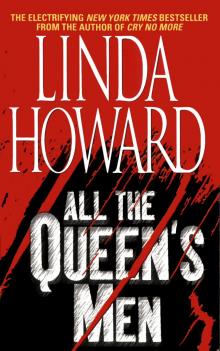 All the Queen's Men
All the Queen's Men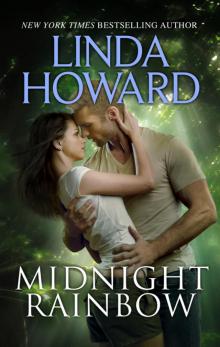 Midnight Rainbow
Midnight Rainbow Diamond Bay
Diamond Bay Dying to Please
Dying to Please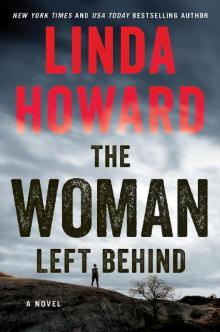 The Woman Left Behind
The Woman Left Behind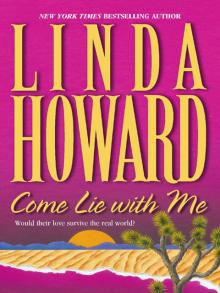 Come Lie With Me
Come Lie With Me Drop Dead Gorgeous
Drop Dead Gorgeous To Die For
To Die For Ice
Ice Overload
Overload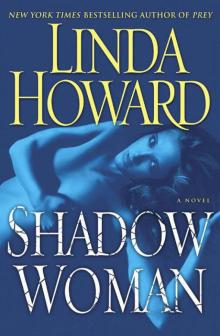 Shadow Woman
Shadow Woman Veil of Night
Veil of Night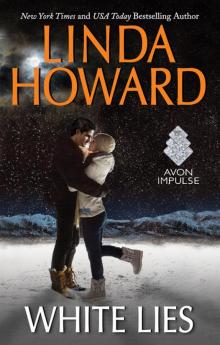 White Lies
White Lies Son of the Morning
Son of the Morning The Complete Mackenzies Collection
The Complete Mackenzies Collection Lake of Dreams
Lake of Dreams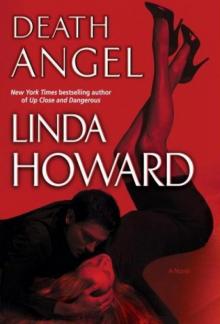 DeathAngel
DeathAngel Loving Evangeline
Loving Evangeline Burn
Burn Mackenzie's Magic
Mackenzie's Magic Against the Rules
Against the Rules Burn: A Novel
Burn: A Novel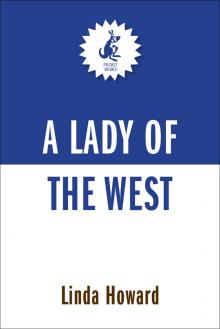 A Lady of the West
A Lady of the West Almost Forever
Almost Forever Open Season
Open Season Now You See Her
Now You See Her Prey
Prey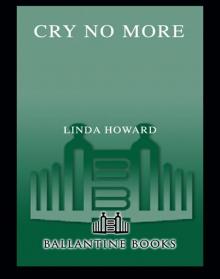 Cry No More
Cry No More Sarah's Child
Sarah's Child Angel Creek
Angel Creek Death Angel
Death Angel Kill and Tell
Kill and Tell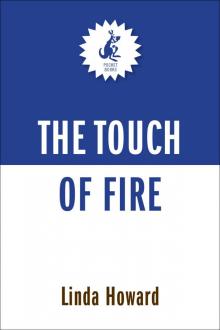 The Touch of Fire
The Touch of Fire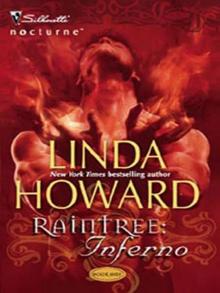 Raintree: Inferno
Raintree: Inferno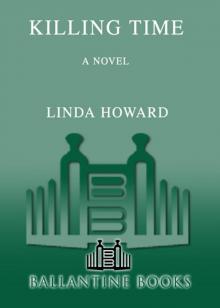 Killing Time
Killing Time Cover of Night
Cover of Night Tears of the Renegade
Tears of the Renegade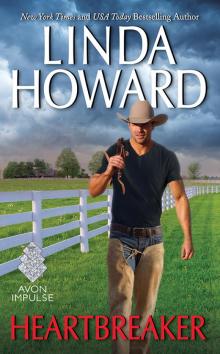 Heartbreaker
Heartbreaker The Cutting Edge
The Cutting Edge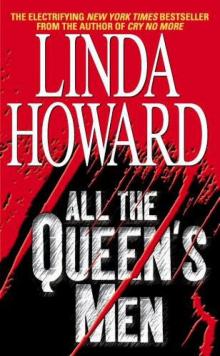 All The Queen's Men cs-2
All The Queen's Men cs-2 Veil of Night: A Novel
Veil of Night: A Novel Blood Born
Blood Born The Complete Mackenzie Collection
The Complete Mackenzie Collection Mackenzie's Magic m-4
Mackenzie's Magic m-4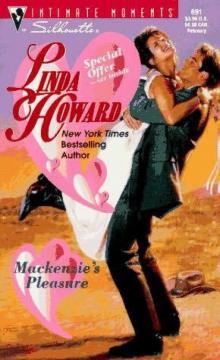 Mackenzie's Pleasure m-3
Mackenzie's Pleasure m-3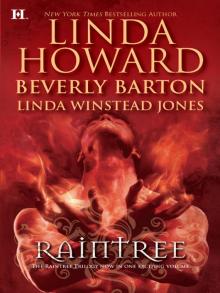 Raintree
Raintree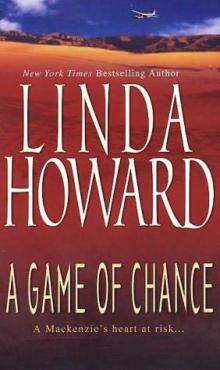 A Game Of Chance m-5
A Game Of Chance m-5 Prey: A Novel
Prey: A Novel Lethal Attraction: Against the RulesFatal Affair
Lethal Attraction: Against the RulesFatal Affair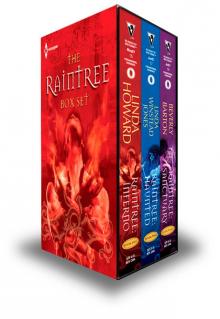 The Raintree Box Set: Raintree: InfernoRaintree: HauntedRaintree: Sanctuary
The Raintree Box Set: Raintree: InfernoRaintree: HauntedRaintree: Sanctuary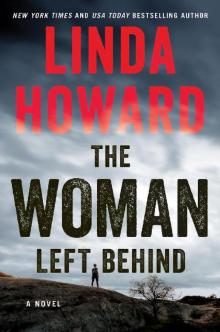 The Woman Left Behind: A Novel
The Woman Left Behind: A Novel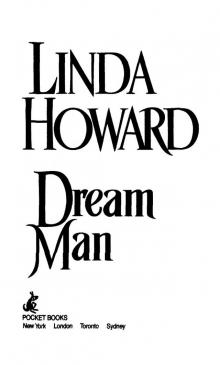 Dream Man
Dream Man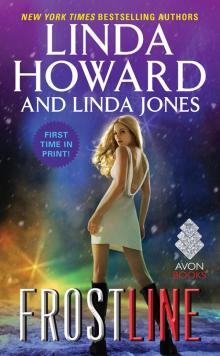 Frost Line
Frost Line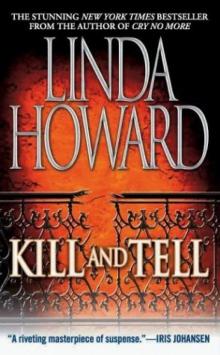 Kill and Tell cs-1
Kill and Tell cs-1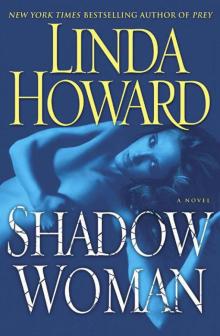 Shadow Woman: A Novel
Shadow Woman: A Novel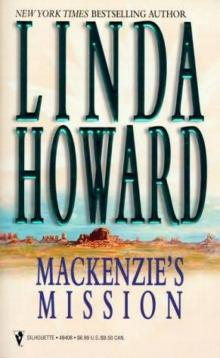 Mackenzie's Mission
Mackenzie's Mission Strangers in the Night
Strangers in the Night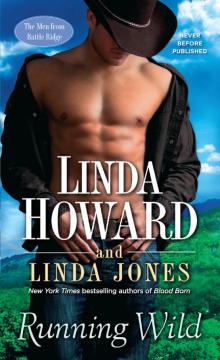 Running Blind
Running Blind